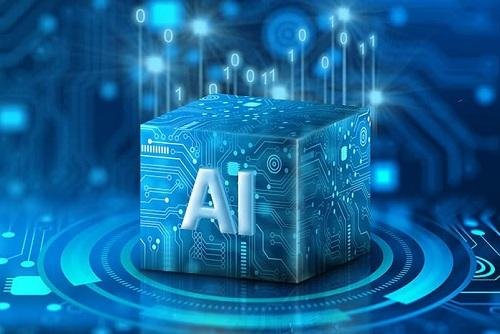Industrial AI Market Overview:
The Industrial AI market has emerged as a critical component in modern manufacturing and industrial sectors, driving efficiency, productivity, and innovation. Leveraging technologies such as machine learning, neural networks, and deep learning, Industrial AI facilitates predictive maintenance, quality assurance, supply chain optimization, and more. The Industrial AI Market size is projected to grow USD 89.53 billion by 2032, exhibiting a CAGR of 46% during the forecast period 2024 - 2032. Industries ranging from automotive to energy and logistics are integrating AI to automate processes and derive actionable insights from data. With the global push towards Industry 4.0 and the growing adoption of IoT devices, the Industrial AI market is poised for exponential growth.
Get a sample PDF of the report at –
https://www.marketresearchfuture.com/sample_request/12213
Competitive Analysis:
The Industrial AI market is highly competitive, with several key players innovating to maintain their market share. Companies like,
- IBM
- Siemens AG
- Microsoft
- General Electric
are leading the charge with robust AI platforms tailored for industrial applications. Startups such as Uptake and SparkCognition are also making significant strides by offering specialized solutions for niche markets. Collaborations and acquisitions are a common strategy among these players to enhance their capabilities. For instance, Siemens’ MindSphere platform integrates AI with IoT to provide seamless analytics for industrial operations. The competitive landscape is further enriched by regional players who are adapting AI technologies to local industrial needs, creating a vibrant and diverse market ecosystem.
Market Drivers:
Several factors are propelling the growth of the Industrial AI market. Foremost among these is the increasing need for operational efficiency and cost reduction in manufacturing and industrial processes. AI-powered solutions enable predictive maintenance, reducing downtime and enhancing equipment longevity. The proliferation of IoT devices and the advent of big data analytics are also critical drivers, as they generate vast amounts of data that can be processed and analyzed using AI. Additionally, the shift towards sustainable and smart manufacturing practices is encouraging the adoption of AI technologies to optimize resource utilization and reduce environmental impact. Governments worldwide are also providing incentives and funding for AI research and development, further catalyzing market growth.
Market Restraints:
Despite its promising outlook, the Industrial AI market faces several challenges. High implementation costs and the complexity of integrating AI systems with existing infrastructure are significant barriers for small and medium enterprises. Data privacy and security concerns also pose a threat, as industrial operations increasingly rely on interconnected systems that are vulnerable to cyberattacks. The shortage of skilled professionals capable of developing and managing AI solutions is another critical restraint. Moreover, regulatory hurdles and ethical considerations surrounding AI adoption can slow down its widespread deployment. Addressing these challenges will require collaborative efforts from industry stakeholders, governments, and academia.
Segment Analysis:
The Industrial AI market can be segmented based on technology, application, and industry vertical. By technology, machine learning and computer vision are among the most widely adopted, driven by their versatility and effectiveness in diverse industrial scenarios. By application, predictive maintenance, quality management, and supply chain optimization stand out as the primary areas where AI is making a significant impact. By industry vertical, sectors like automotive, aerospace, energy, and healthcare are leading adopters of Industrial AI. For example, in the automotive sector, AI is being used for autonomous vehicle development and assembly line automation, while in healthcare, it supports predictive diagnostics and equipment maintenance.
Browse a Full Report –
https://www.marketresearchfuture.com/reports/industrial-ai-market-12213
Regional Analysis:
Geographically, the Industrial AI market exhibits strong growth across North America, Europe, Asia-Pacific, and other regions. North America leads the market, driven by technological advancements, robust infrastructure, and the presence of key players. The U.S., in particular, is a hotbed for AI innovation, supported by extensive R&D activities and government initiatives. Europe follows closely, with countries like Germany and France investing heavily in AI to support their manufacturing sectors. The Asia-Pacific region is witnessing rapid growth due to the increasing adoption of smart manufacturing practices in countries like China, Japan, and India. These nations are leveraging AI to enhance their industrial competitiveness on a global scale. Other regions, including Latin America and the Middle East, are also embracing Industrial AI to modernize their industries and improve economic resilience.
The Industrial AI market is on a transformative journey, reshaping industries and redefining operational paradigms. While challenges exist, the opportunities far outweigh them, with advancements in AI technology continually expanding its scope and effectiveness. As industries embrace digital transformation, the role of Industrial AI will only grow, making it a cornerstone of future industrial ecosystems.
Top Trending Reports:
Privacy Management Software Market
Contact
Market Research Future (Part of Wantstats Research and Media Private Limited)
99 Hudson Street, 5Th Floor
New York, NY 10013
United States of America
+1 628 258 0071 (US)
+44 2035 002 764 (UK)
Email: sales@marketresearchfuture.com
Website: https://www.marketresearchfuture.com


